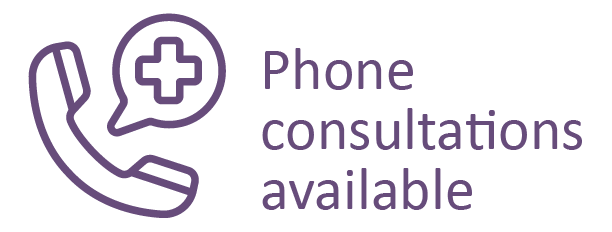Mr Andrew Goodall, Physiotherapist
Mr Andrew Goodall
Physiotherapist
Mr Andrew Goodall MSc, BSc
Physiotherapist


Areas of expertise
- ACL rehabilitation
- Knee
- Sports injuries
- Foot and ankle
- Hip and groin
- Tendons of the lower limb



Recommendations for Mr Goodall
These recommendations are for information purposes only. Doctors providing recommendations do so in good faith and are not responsible for clinical outcomes.












Recommended by:
Make an appointment
Address
-
Telephone or video consultation
Available for patients, please call to arrange, E14 4QT
-
Pure Sports Medicine, Canary Wharf E14
Level 2, Cabot Place West, Canary Wharf, London, E14 4QT
About Mr Andrew Goodall
HCPC number: PH95624
Year qualified: 2008
Place of primary qualification: University of Essex
Andrew works as a Physiotherapist at Pure Sports Medicine, Canary Wharf in London. His main areas of clinical interests include sports injuries, knee, foot and ankle, hip & groin, tendons, ACL, lower limb rehab, back pain, emergency medicine, therapeutic massage, fitness, strength and rehabilitation. His sporting interests are football, golf, rugby, cricket and cross fit.
Andrew worked at David Lloyd, Colchester United FC Academy, Thurrock RFC and Chelsea and Westminster Hospital Trust before joining Pure Sports Medicine. He has also been involved with National Rugby, National Rugby 7’s and Cricket coaching.
Areas of expertise
- Sports injuries
- Knee
- Foot & ankle
- Hip & groin
- Tendons of the lower limb
- ACL rehabilitation
- Lower limb rehab
- Physical therapy
- Manual therapy
- Rehabilitation
- Musculoskeletal
- Exercise prescription
- Sports injuries
- Injury prevention
- Strength training
- Exercise physiology
- Clinical research
- Back pain
- Emergency medicine
- Therapeutic massage
- Fitness
- Strength
- Musculoskeletal system
- Sports
Frequently asked questions
What are the common symptoms that your patients tend to present with?
My patients tend to largely be of lower limb injuries. I tend to see lots of hips, knees, ankles and a fair amount of postoperative rehab. They tend to present with stiffness in one particular area and tend to present with pain, limitations especially with regards to return to sports or activity they might be engaged with. Very often, they come with apprehensions or fears about returning or completing events or returning to the sports or their desired activity level.
What are the treatments that you're able to offer your patients?
I would say that I focus a lot on characteristics of evidence-based management. As a result, I tend to do a lot of exercise-based rehabilitation both in a gym setting and, occasionally, outdoors if weather permits, and then also activities that are functional or appropriate to their sporting activity, retraining drills and such to supplement that and to improve their recovery rate or to improve their pain or symptoms of stiffness, etc. I also do a fair amount of deep tissue release. I also use manual therapy mobilization and, very occasionally, some manipulations. I can use acupuncture and dry needling, if appropriate. But largely, I would say focus around the real heavy exercise, therapeutic movement-based approach.
What are your areas of sub-specialist interest?
I would say my main interest or subspecialty is rehabilitation post knee reconstruction, and largely ACL recovery. I see all types of knee injuries, including meniscectomies, meniscal repairs, multi-ligament type knee injuries postoperatively and preoperatively. I do lots of work with consultants on the prehabilitation phase prior to surgery as well, and also trying to optimise those patients that are choosing a conservative management approach. Apart from the knee, I also see a lot of femoroacetabular impingement or hip-based pathology, especially in those sporting athletes that play lots of team sports such as rugby, football and crossfit. As a result of working previously in rugby and football, I see a lot of strength trainers, crossfitters and all those gym-based rehabilitation patients. Of the back of that, I see lots of lower limb injuries including the foot and ankle. You can't not if you treat lots of knees and hips. Apart from that, I would say tendons is one of the main pathologies I tend to see. Again, I think this comes off the back of some of the strength training, gym-based, overload type athletes who like to push the boundaries, including those that play rugby tend to pick up these overuse-based injuries.
Professional memberships



























